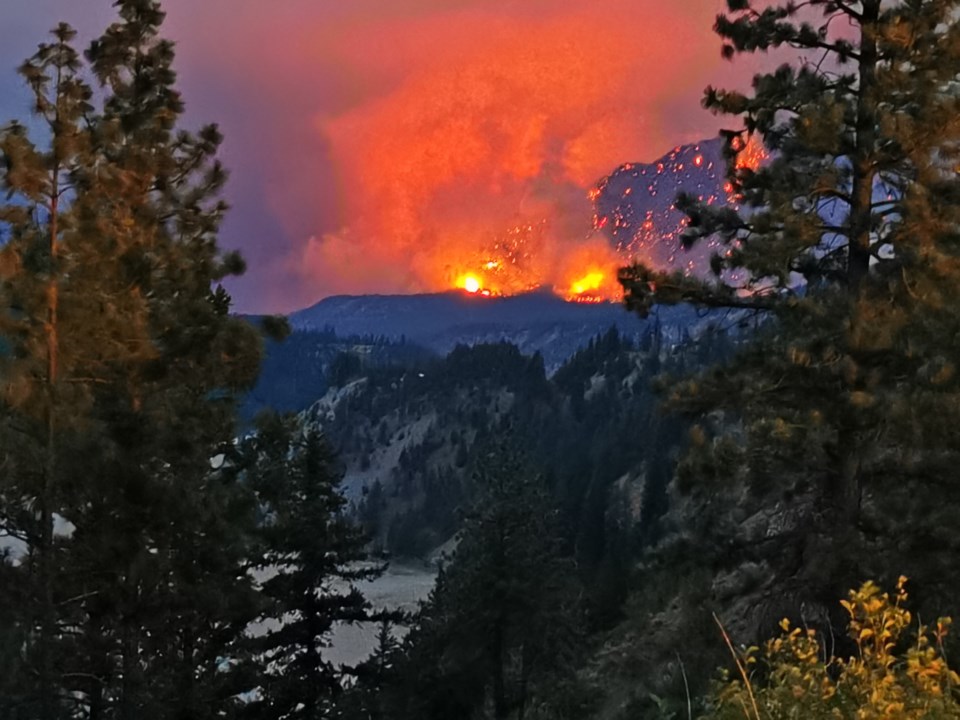The whole point of curbing climate change is to preserve our planet for future generations, as we’re often reminded.
It has become clear that a changing climate is something existing generations like mine will have to deal with, but I still imagined those changes would only be a noticeable issue for future me. The few-decades-down-the-line future me, who’ll definitely be reminiscing about how we once filled our vehicles with fossil fuels while stepping into my self-driving car.
The Earth is warming and glaciers are receding at alarming rates, but really it’s only a degree here or a centimetre there, right? Lakes still freeze in the winter and melt in the summer. The sun sets at night and rises in the morning. These are things we can depend on.
But if last week’s record-breaking heat wave taught us anything, it’s that we can no longer depend on much when it comes to the climate—except change.
Experiencing the unprecedented-ness of it all felt eerie enough to stir up nervous chills even as temperatures pushed 40 degrees Celsius. But aside from the uncomfortable reminder that the effects of climate change have already arrived, dealing with this particular weather event was manageable. For me, at least.
Even without an air-conditioned apartment, staying cool isn’t difficult when your options include heading into an office so cold you need a sweater or spending your days off diving into a glacier-fed lake.
Not everyone has those options.
As Glacier Media’s Stefan Labbé reported this week, the heat wave likely contributed to 579 more sudden deaths across British Columbia compared to the five-year average over the same period, according to data from the BC Coroners Service. Many of those individuals were found alone in poorly ventilated apartments.
Then there are the people in and around Lytton, just across a mountain range from Whistler. They weathered the hottest temperatures Canada has ever experienced for three consecutive days, only to see nearly the entire village levelled by a wildfire on the fourth day.
Lytton, surrounded by First Nations communities, might be located in close proximity to Whistler, but the circumstances of our two towns vary greatly. Lytton’s median household income before tax was $50,816 in 2015, compared to $79,752 in Whistler, for one.
When Whistler’s wildfire risk comes up in conversation, I’ll sometimes hear, “they’ll never let Whistler burn down, it’s too valuable.”
If Lytton residents can go from spotting smoke to fleeing flame-engulfed homes within 15 minutes, something similar could absolutely happen here. But yes, the preventative work accomplished by the FireSmart program would hopefully make a difference in the outcome. And people are probably right when they say all available resources would be re-directed to save whatever they could of a global tourism destination that pulled in $1.37 million in tax revenue per day, pre-pandemic.
Like the advantages of living walking distance from an icy blue lake or an air-conditioned workplace, that assuredness of protection is one more privilege that comes from living where we do.
Ed Struzik, a fellow at the Queen’s Institute for Energy and Environmental Policy, recently compared the treatment of wildfires in places like Lytton to more renowned locations like national parks in an article for The Tyee.
“Most rural communities, especially those inhabited by Indigenous people, do not have the tax base to manage the vegetation in and around town as more affluent communities such as Banff and Jasper do with the federal funding that comes with being located in a national park,” he wrote.
“This is one of the reasons why First Nations communities such as Lytton account for 40 per cent of the evacuations in Canada. Their welfare is treated with less importance than those of tourists who spend big money in national parks.”
Or Whistler, I’d add.
Struzik continued on to explain that those who lost everything in Lytton will likely be compensated by insurance agencies and governments, but pointed out that a fraction of the probable payout would have been better spent making the community more resilient to fires in the first place.
This past year has forced a lot of us to confront our own privileges and the inequalities that continue to exist in our societies. As the effects of climate change become more noticeable across Canada, it’s becoming clearer that they will hit lower-income, rural and Indigenous populations sooner and harder.
Climate change will affect all of us. Scratch that—climate change is already affecting all of us. But it won’t affect us all equally, and I think that’s something worth keeping in mind as we consider how best to handle the next unprecedented weather event that comes our way.





